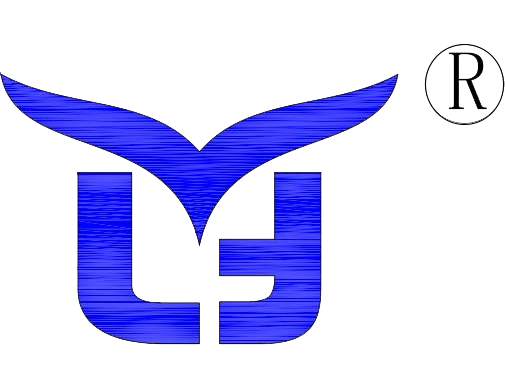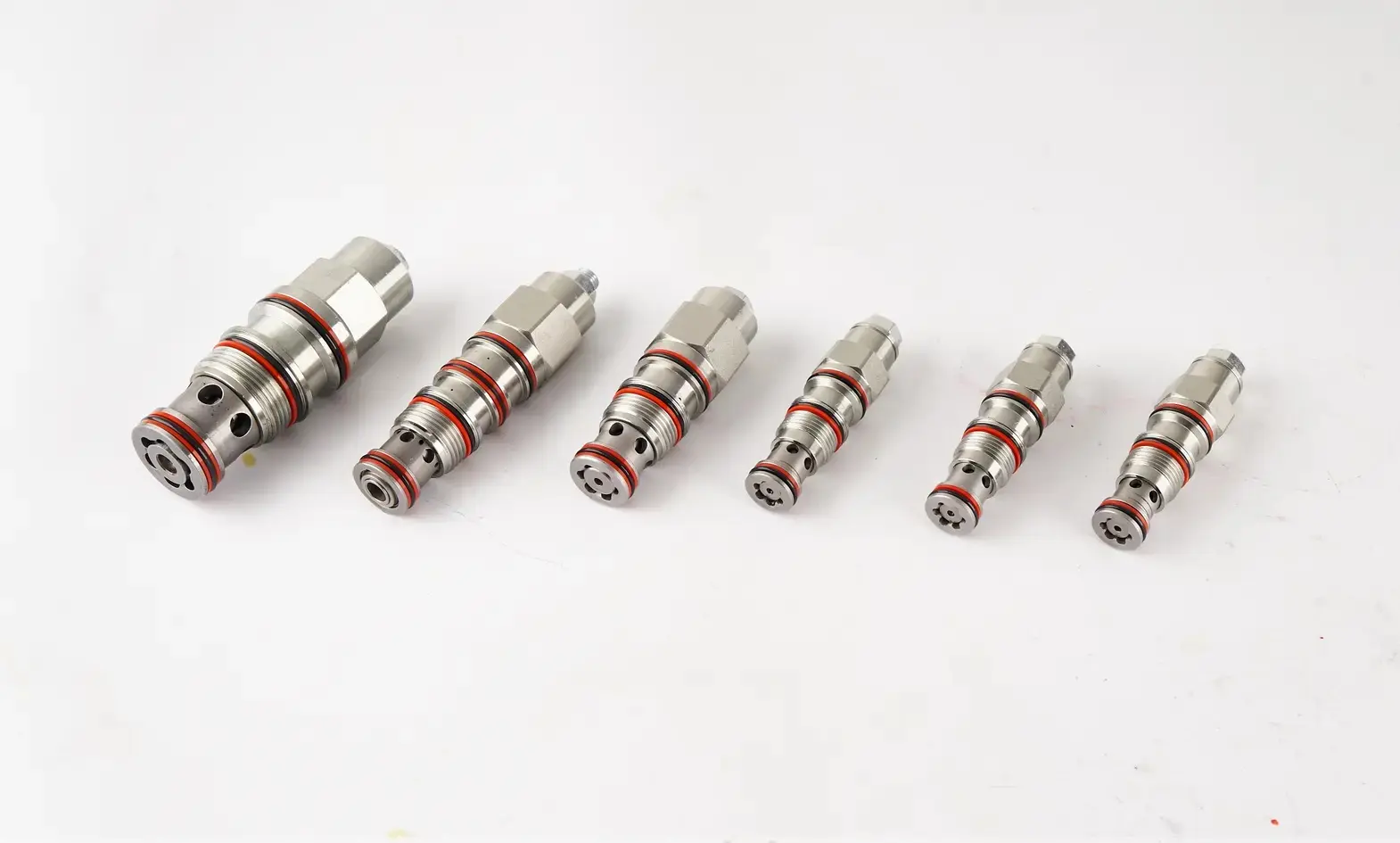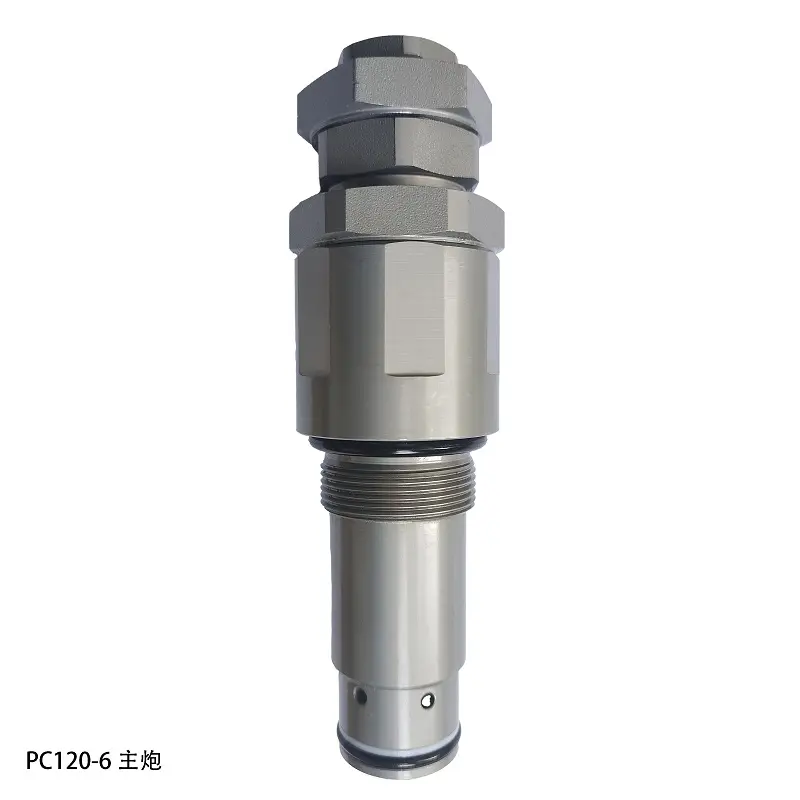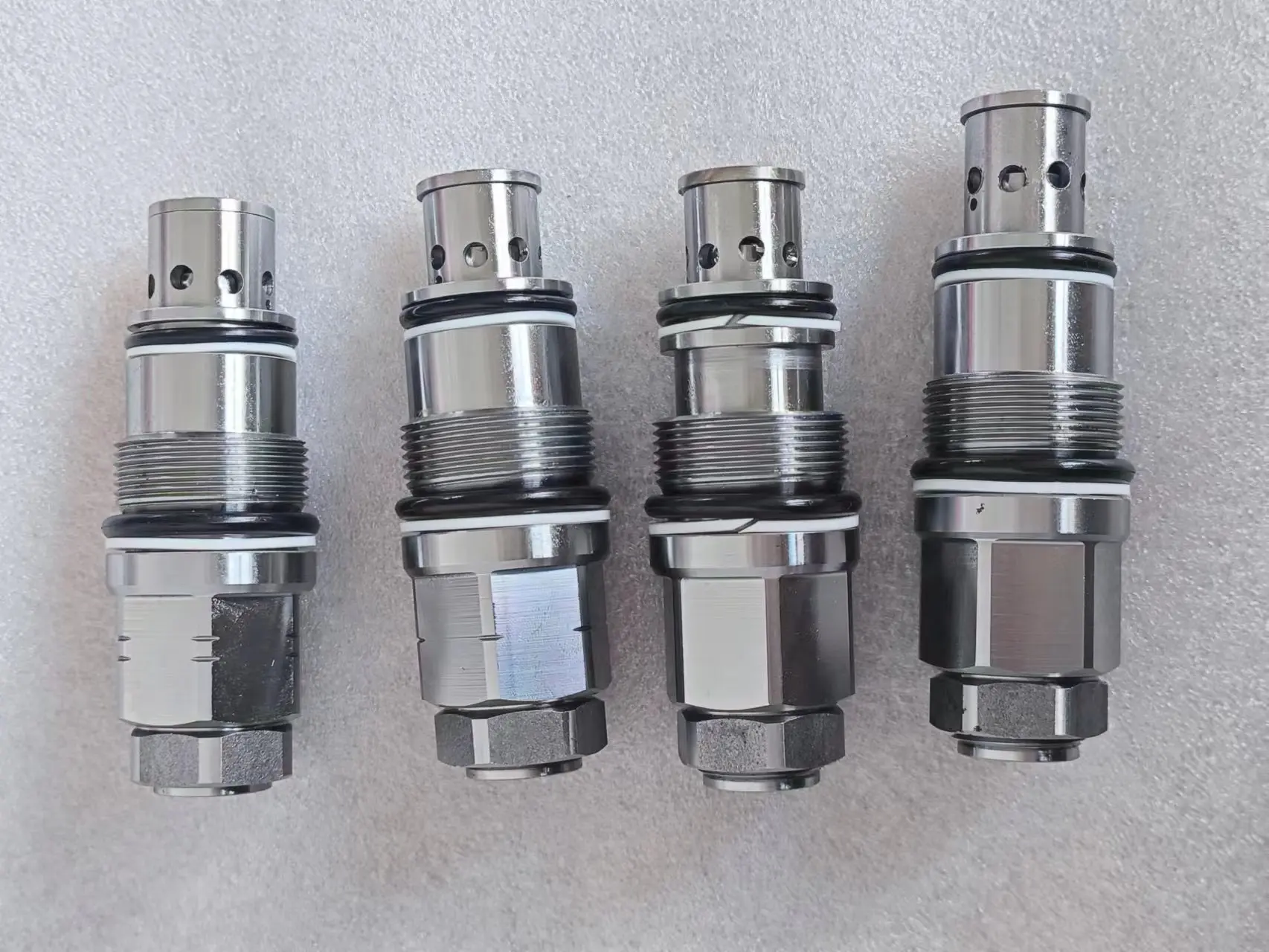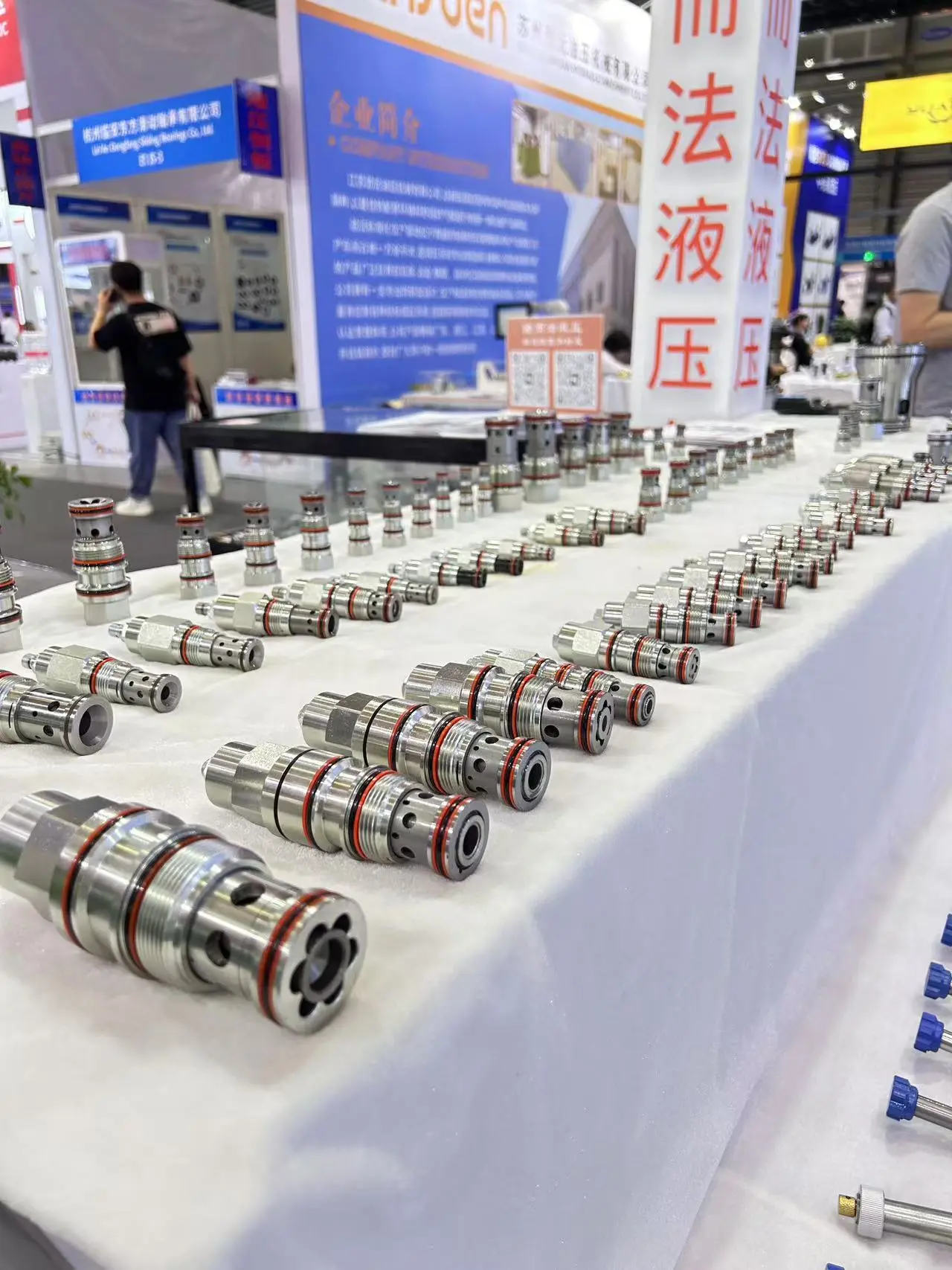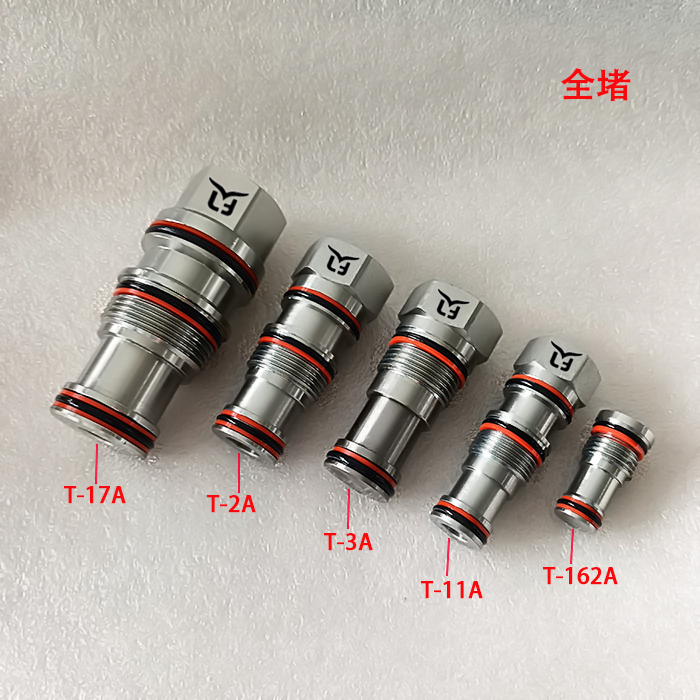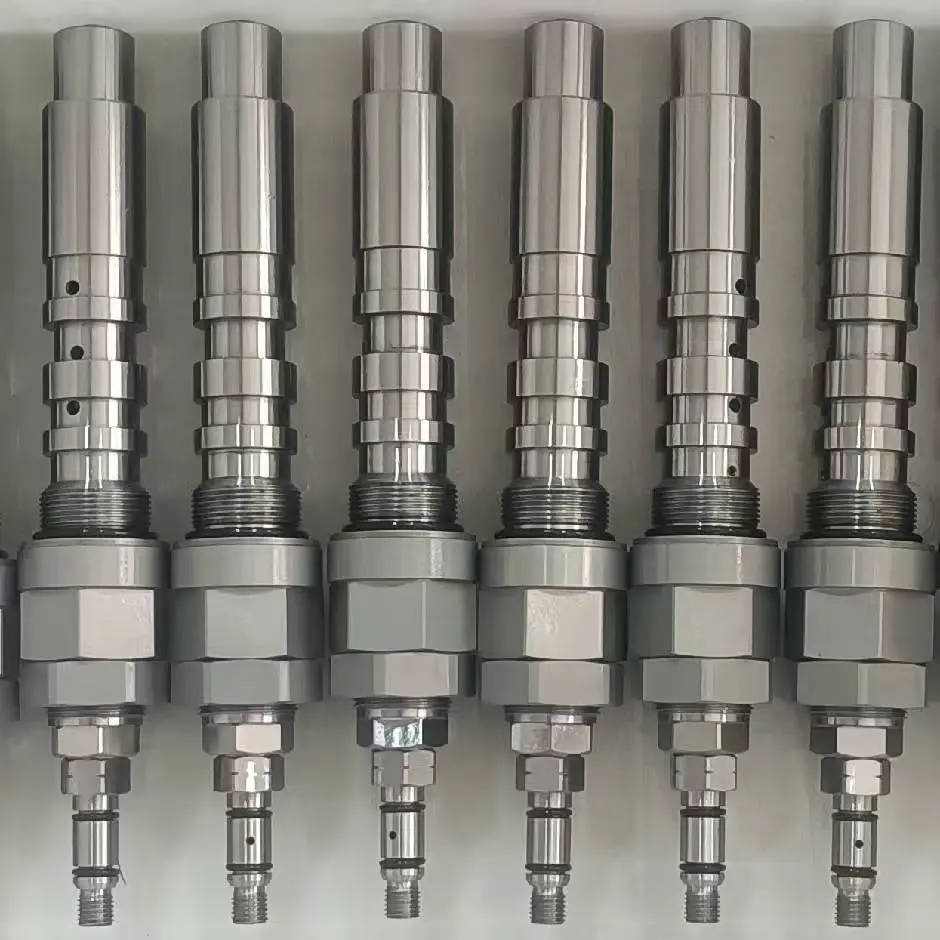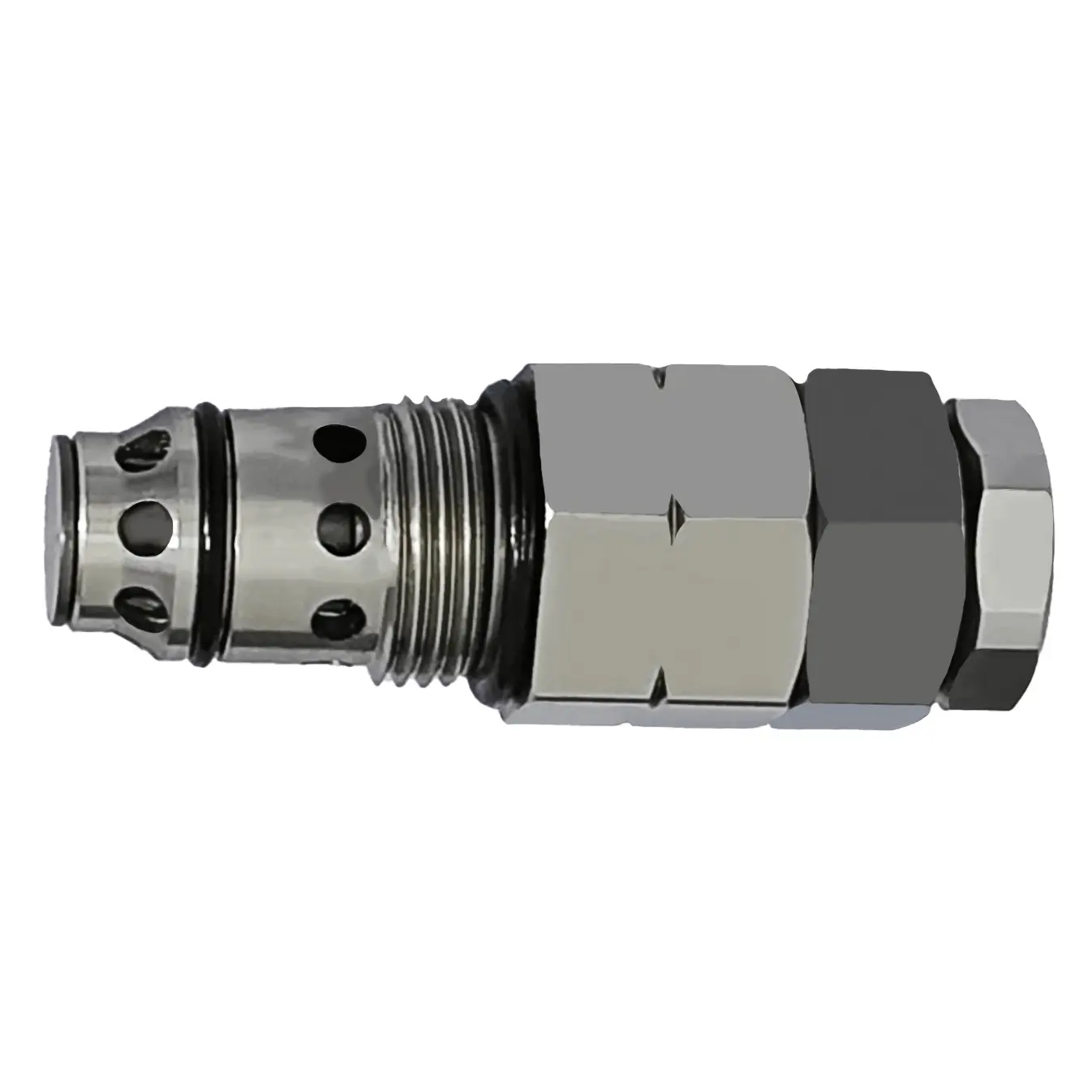Which 4 Way 2 Position Solenoid Valve Brand Is Best?
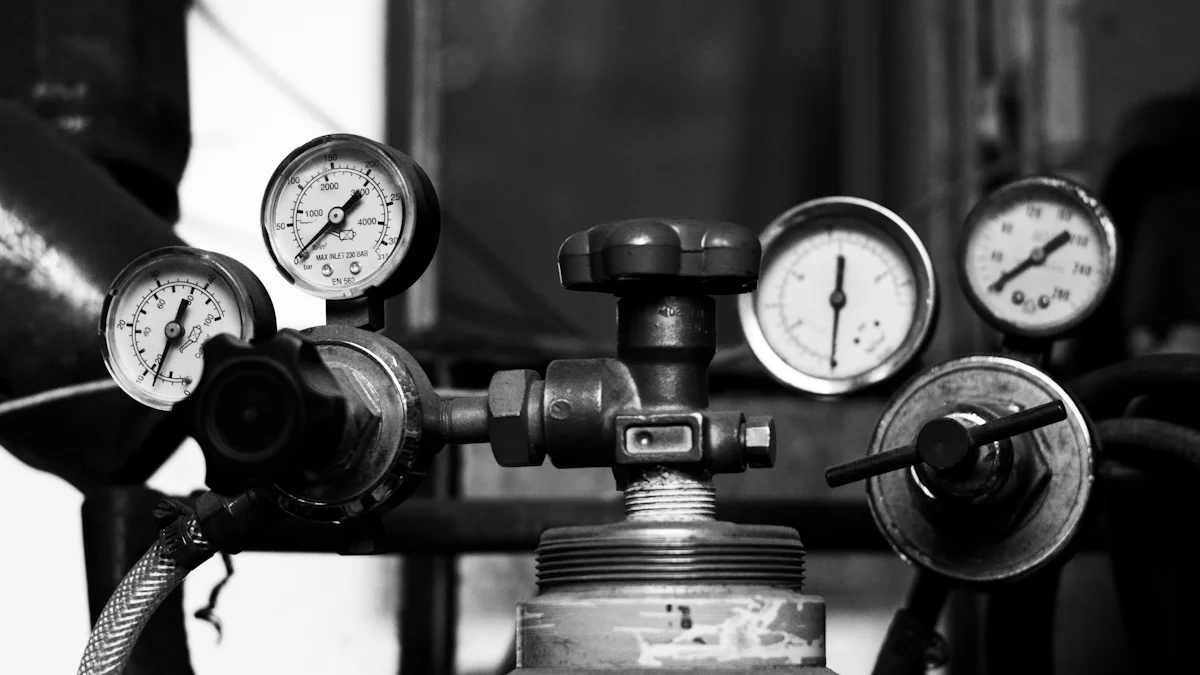
Choosing the right 4 way 2 position solenoid valve can transform how your system operates. Each application demands specific features to ensure optimal performance. For instance, fluid type compatibility and pressure capacity play a crucial role in industrial setups. Electrical specifications and environmental conditions also determine whether a valve will function reliably over time.
Matching the valve size to the piping and flow rate prevents pressure drops. A two-position four-way solenoid valve excels in controlling flow direction, making it ideal for systems requiring precise switching. In contrast, a three-position four-way solenoid valve offers additional flexibility for more complex operations. Selecting the right valve enhances system longevity and boosts efficiency.
Key Takeaways
- Picking the right 4 way 2 position Solenoid Valveimproves how your system works and lasts longer. Think about if it works with your fluid and handles the pressure.
- Good quality and dependability are key. Choose valves made from strong materials and tested well to lower repair costs.
- Check price and value. A good valve should be affordable but work well, saving money on fixes and replacements over time.
- Strong valves are important. Pick ones made from rust-proof materials so they last in tough conditions.
- Customer help and warranties matter. A helpful team and good warranty show the maker trusts their product.
Key Comparison Criteria for 4 Way 2 Position Solenoid Valves
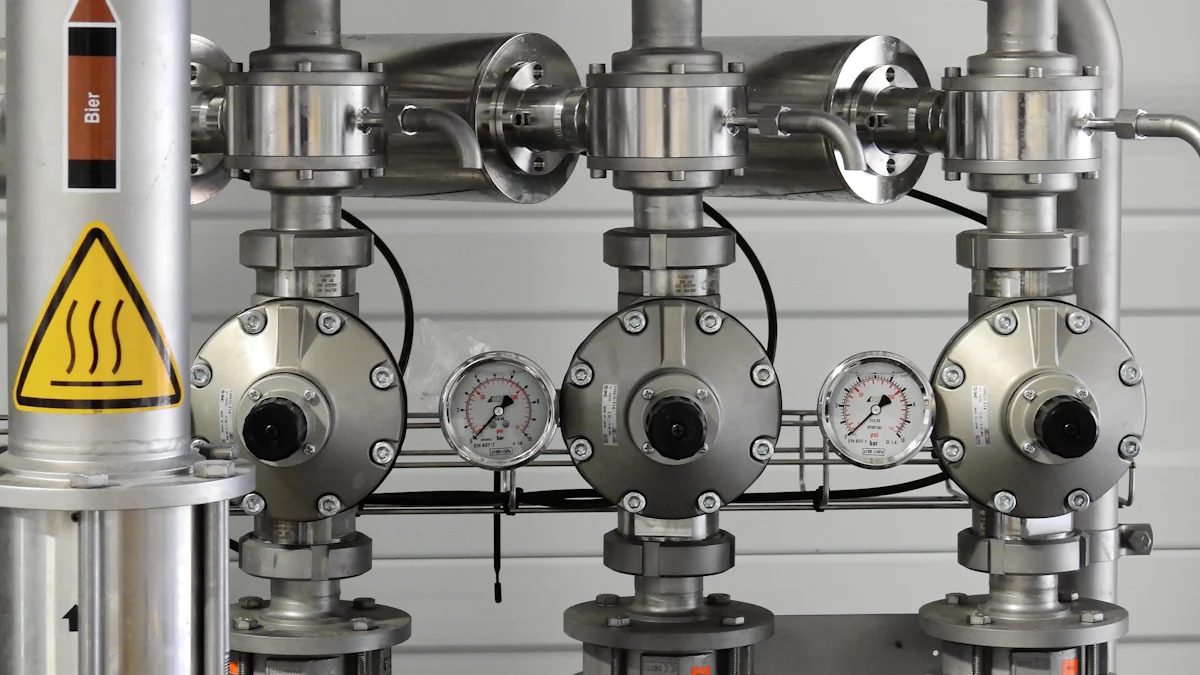
Quality and Reliability
When I evaluate a 4 way 2 position solenoid valve, quality and reliability always come first. High-quality materials, like corrosion-resistant metals, ensure the valve performs well in demanding environments. Manufacturers that prioritize rigorous testing, such as pressure and electrical tests, deliver products that meet strict performance standards. This testing helps identify potential failures before the valve reaches the market. I’ve noticed that valves made with substandard materials often degrade quickly, leading to rust and reduced reliability. Choosing a valve with strong quality assurance processes minimizes maintenance costs and ensures long-term durability.
Performance and Features
Performance defines how effectively A Solenoid Valve operates in its intended application. A 4 way 2 position solenoid valve stands out for its ability to control flow direction with precision. I’ve found that high-performing valves often integrate seamlessly with hydraulic and pneumatic systems, making them versatile for various industries. Features like remote operation through solenoid coil activation enhance safety, especially in hazardous conditions. The plunger’s travel distance and response time also play a critical role. These factors determine how quickly and efficiently the valve opens and closes, directly impacting system performance. For specialized applications, such as oxygen compatibility, I recommend valves designed with unique construction to handle such demands.
Price and Value for Money
Price is always a key consideration, but I believe value matters more. A well-priced valve should offer a balance between cost and performance. For example, I’ve seen valves priced as low as $89.73 for basic models, while high-performance options can exceed $1,200. The price often correlates with features like maximum PSI capacity and build quality. Investing in a reliable valve upfront can save money in the long run by reducing maintenance and replacement costs. I always advise comparing specifications and prices to ensure the valve meets both budget and performance needs.
Durability and Longevity
Durability plays a critical role in the performance of any 4 way 2 position solenoid valve. I always look for valves made from high-quality materials like stainless steel. These materials resist corrosion and wear, which helps the valve last longer in harsh environments. Manufacturers that follow strict quality control processes also ensure consistent performance. This attention to detail reduces the chances of failure during operation.
I’ve noticed that heating issues can significantly impact the lifespan of solenoid valves. Excessive heat often damages the coil, leading to premature failure. To avoid this, I recommend choosing valves with efficient designs that minimize heat generation. For example, a well-designed valve housing can improve heat dissipation, keeping the internal components safe. Power usage also matters. Using the correct voltage and current prevents unnecessary strain on the coil, extending its life.
Another factor I consider is the spring force inside the valve. A strong spring helps counteract friction, ensuring smooth operation over time. This feature enhances reliability, especially in demanding applications. I’ve found that valves with robust internal components tend to perform better and last longer. By focusing on these aspects, you can select a valve that offers both durability and longevity.
Customer Support and Warranty
Customer support and warranty coverage are just as important as the product itself. I always check if the manufacturer provides clear and accessible support channels. A responsive customer service team can quickly address issues, saving time and frustration. Some brands even offer technical assistance to help with installation or troubleshooting. This level of support makes a big difference, especially for complex systems.
Warranty terms also reflect the manufacturer’s confidence in their product. I’ve seen warranties range from one year to several years, depending on the brand. A longer warranty often indicates higher quality and reliability. It’s essential to read the warranty details carefully. Look for coverage that includes defects in materials or workmanship. This ensures you’re protected if something goes wrong.
In my experience, brands that prioritize customer satisfaction often provide better overall value. They not only deliver reliable products but also stand behind them with excellent support and warranty policies. When choosing a 4 way 2 position solenoid valve, consider these factors to make an informed decision.
Brand-by-Brand Analysis of 4 Way 2 Position Solenoid Valves
Parker
Strengths
Parker solenoid valves excel in versatility and performance. I’ve found their compact design particularly useful for applications where space is limited. They handle high flow rates, up to 81.7Cv, which boosts efficiency in demanding systems. The visual position indicator simplifies monitoring, while optional features like a limit switch box or proximity sensor enhance control. Their proportional Control Valves allow precise adjustments for pressure, temperature, and flow, making them ideal for specialized applications.
Durability is another standout feature. The stainless steel actuator housing ensures long-lasting performance, even in harsh environments. I also appreciate their flexibility in installation. These valves can be mounted in any position, which simplifies setup. Parker’s compliance with ANSI Class VI standards guarantees tight shut-off, reducing leakage risks. Additionally, their adherence to safety directives like the European ATEX Directive makes them suitable for explosive environments.
| Feature/Benefit | Description |
|---|---|
| Compact Design | Space-saving design suitable for various applications. |
| High Flow Rates up to 81.7Cv | Capable of handling significant flow, enhancing efficiency. |
| Visual Position Indicator | Allows for easy monitoring of valve status. |
| Optional Limit Switch Box or Proximity Sensor | Provides direct and remote indication of valve position. |
| Proportional Control Valves | Enables precise control of pressure, temperature, flow, and liquid levels. |
| Exceptional Durability | Stainless steel actuator housing ensures long-lasting performance. |
| Mountable in Any Position | Flexibility in installation to suit various setups. |
| ANSI Class VI for Tight Shut-Off | Guarantees reliable sealing and minimizes leakage. |
| Compliance with Pressure Equipment Directive 97/23/EC | Ensures safety and reliability in industrial applications. |
| Compliance with European ATEX Directive 2014/34/EU | Suitable for use in potentially explosive environments. |
Weaknesses
Parker valves often come with a higher price tag. This can make them less appealing for cost-conscious buyers. Their advanced features may also be unnecessary for simpler applications, leading to over-specification.
ASCO
Strengths
ASCO has a long history of innovation. They introduced the first solenoid valve in the 1910s, and their expertise shows in their products. I’ve noticed their valves operate with as little as 0.55W, making them ideal for battery or solar-powered systems. Their tighter tolerances and efficient designs enhance performance, while larger orifices and standard filters prevent clogging. ASCO offers a wide range of valves, including general service, special service, combustion, and automation valves.
Their versatility extends to applications. ASCO valves handle high and low temperatures, steam, fuel, gas, and oil. They also excel in sanitary environments like food and pharmaceutical industries. I’ve seen them used in dust collection systems to improve air quality. Their reliability in refining and water treatment further highlights their adaptability.
Weaknesses
ASCO valves may require more frequent maintenance in highly corrosive environments. Their extensive product range can also make it challenging to select the right valve without expert guidance.
AutomationDirect
Strengths
AutomationDirect solenoid valves stand out for their efficient design. They have fewer moving parts, which reduces wear and tear. I’ve found their remote operation capability particularly useful for systems requiring precise control. These valves integrate seamlessly with hydraulic and pneumatic systems, offering rapid and accurate switching.
Their compact and robust design ensures long-lasting performance. They operate efficiently in extreme temperatures and support both AC and DC voltages. I also appreciate their safety features, like external leakage blocks. These valves can function in both vertical and horizontal orientations, adding to their versatility.
- Low energy use
- Remotely operated
- Cost-effective to maintain and service
- Compatible with AC and DC voltages
- Extremely fast open and shut times
- Capable of operating in extreme temperatures
- Safety external leakage block
- Operates both vertically and horizontally
Weaknesses
AutomationDirect valves may lack some of the advanced features found in premium brands. Their focus on cost-effectiveness might not meet the needs of high-performance applications.
Solenoid Solutions Inc.
Strengths
Solenoid Solutions Inc. specializes in custom-engineered solenoid valves, making them a go-to choice for unique applications. I’ve noticed their valves excel in precision and adaptability. They offer miniature and subminiature designs, which are perfect for compact systems. Their focus on customization allows engineers to tailor valves to specific flow rates, pressure ranges, and environmental conditions. This flexibility ensures optimal performance in specialized setups.
Another standout feature is their energy-efficient designs. Solenoid Solutions Inc. incorporates low-power coils, which reduce energy consumption without compromising performance. This makes their valves ideal for battery-operated or energy-sensitive systems. I’ve also found their valves to be highly reliable, with consistent operation even in demanding environments. Their commitment to quality control ensures each valve meets rigorous standards before leaving the factory.
Weaknesses
While their customization options are impressive, they can lead to longer lead times. This may not suit projects with tight deadlines. Additionally, their focus on niche applications might make their valves less appealing for general-purpose use.
Magnatrol Valve Corporation
Strengths
Magnatrol Valve Corporation stands out for its expertise in controlling liquids and gases. Their solenoid valves are widely used in industries like food processing, packaging, and medical equipment. I’ve seen their valves excel in applications such as:
- Processing and packaging liquids and gases
- Medical equipment like ventilators and anesthesia machines
Their valves are also popular in industries like meat processing, dairy, and beverage production. This versatility makes them a reliable choice for diverse applications. Magnatrol’s valves are built with durable materials, ensuring long-lasting performance. Their focus on simplicity and reliability reduces maintenance needs, which I find particularly beneficial for high-demand environments.
Weaknesses
Magnatrol’s valves may lack advanced features found in more modern designs. Their focus on traditional industries might limit their appeal for cutting-edge applications.
Valcor Engineering Corp.
Strengths
Valcor Engineering Corp. designs solenoid valves with exceptional durability and reliability. Their robust structure makes them ideal for nuclear applications. I’ve found their use of Inconel bellows particularly impressive. This material prevents corrosion, ensuring the valve operates smoothly even in harsh environments. Their metal seat poppet seals withstand thousands of actuation cycles without leaking, which enhances reliability.
Valcor’s valves also meet stringent quality standards. They hold an ASME N-Stamp certification and design their valves under ASME Section III and B16.34 codes. These certifications reflect their commitment to quality and safety. Their valves perform reliably during and after design basis accidents, such as earthquakes, making them a trusted choice for critical systems.
| Feature | Description |
|---|---|
| Certification | ASME N-Stamp certification for over 45 years |
| Design Standards | ASME Section III and B16.34 compliance |
| Robust Design | Inconel bellows prevent corrosion |
| Cycle Life | Extended cycle life ensures maximum uptime |
| Seal Durability | Metal seat poppet seals withstand thousands of cycles without leaking |
Weaknesses
Valcor’s focus on durability and safety often results in higher costs. Their valves may also be over-engineered for simpler applications, which could deter cost-conscious buyers.
Mac Valves, Inc.
Strengths
Mac Valves, Inc. has built a reputation for delivering innovative and reliable solutions since 1948. I’ve always admired their focus on creating valves that excel in high-performance applications. Their solenoid valves stand out for their fast response times and reliable shifting forces, which ensure repeatable results. These features make them ideal for systems requiring precision and efficiency.
One of the key advantages I’ve noticed is their balanced valve design. This design handles pressure fluctuations without compromising performance. Their valves also feature fewer moving parts, reducing wear points and extending the product’s lifespan. I find their built-in wear compensation particularly impressive, as it ensures reliable seals even after millions of cycles. This level of durability makes their valves a dependable choice for tough environments.
Mac Valves incorporates advanced technologies like D-seal technology, which controls internal friction with precision. Their high flow capability, combined with a short stroke, enhances system throughput. I’ve seen their valves perform exceptionally well in harsh conditions, thanks to their ability to manage contamination effectively. Each valve undergoes 100% end-of-the-line testing, ensuring proper operation before it reaches the customer.
For industries requiring customized solutions, Mac Valves collaborates closely with clients to develop tailored designs. Their extensive field testing and over 100 patents demonstrate their commitment to innovation and reliability. These features make their valves a top choice for high-performance applications, including pneumatic and liquid systems.
Weaknesses
While Mac Valves excels in performance and durability, their advanced features can lead to higher costs. I’ve noticed that their valves may not be the best fit for simpler applications where basic functionality suffices. Additionally, their focus on high-performance solutions might make them less appealing to cost-conscious buyers or those with straightforward needs.
Use Case Recommendations for 4 Way 2 Position Solenoid Valves
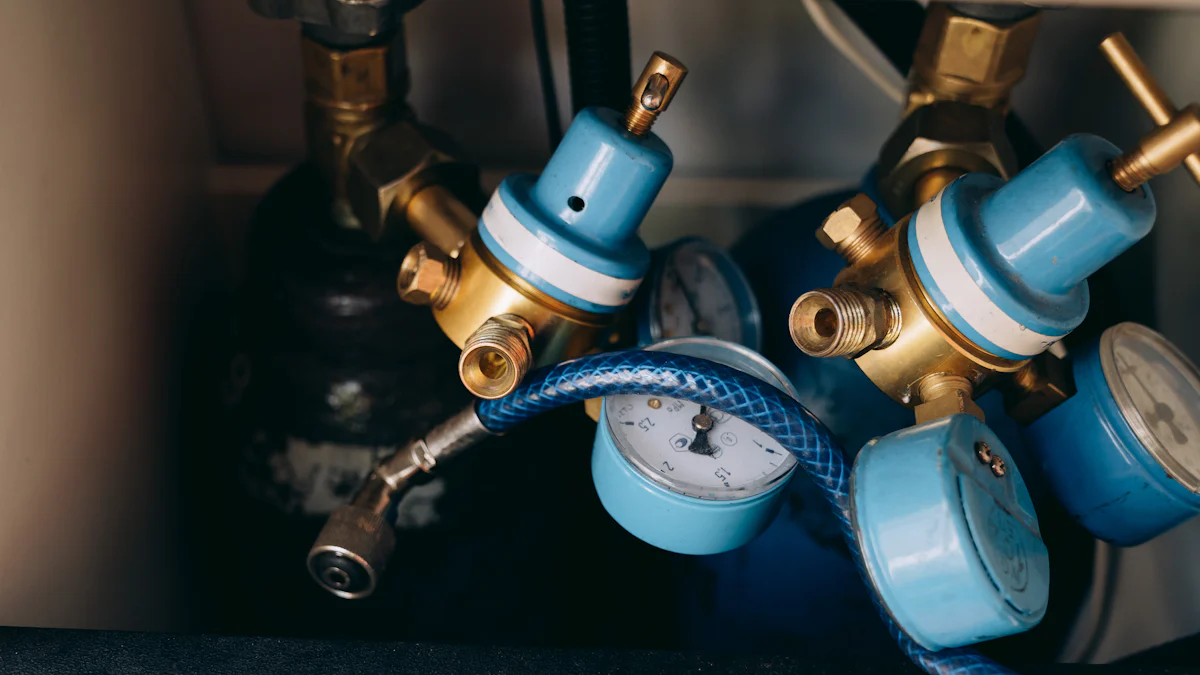
Best for Industrial Applications
When selecting a 4 way 2 position solenoid valve for industrial use, I always prioritize durability and compatibility with harsh environments. Steel solenoid valves stand out in this category. Their corrosion resistance and ability to handle high temperatures and pressures make them ideal for industries like chemical processing and oil and gas production. Stainless steel grades, such as 304 and 316, offer exceptional chemical compatibility and hygienic properties. These features make them suitable for food processing and pharmaceutical applications as well.
Brass solenoid valves, on the other hand, provide a cost-effective option for non-aggressive fluids. They work well in low to medium-pressure applications, such as water systems or HVAC setups. To choose the right valve, I recommend evaluating the pressure and temperature range of your application and assessing the chemical properties of the fluids involved. This ensures the valve performs reliably under specific conditions.
| Feature | Brass Solenoid Valves | Steel Solenoid Valves |
|---|---|---|
| Corrosion Resistance | Limited for aggressive fluids | Exceptional, especially stainless steel grades 304 and 316 |
| Chemical Compatibility | Suitable for non-aggressive fluids | Compatible with multiple chemicals and industrial fluids |
| Hygienic Properties | Moderate hygiene properties | Excellent hygiene properties, easy to clean and sterilize |
| High Pressure and Temperature | Limited tolerance | High tolerance for pressure and temperature applications |
Best for Automotive Applications
For automotive systems, I’ve found that precision and reliability are key. Brands like IMI Precision Engineering, Danfoss Industries Ltd, and Parker Hannifin Corporation excel in this area. Their solenoid valves are designed to handle the demanding requirements of automotive applications, such as fuel injection systems, emission controls, and braking systems. These valves operate efficiently under high temperatures and pressures, ensuring consistent performance.
I also recommend considering TLX Technologies and Kendrion NV for specialized automotive needs. Their products often feature advanced designs tailored for electric vehicles and hybrid systems. These brands focus on innovation, which helps improve energy efficiency and reduce emissions. When choosing a valve for automotive use, I always look for models with fast response times and high durability to ensure long-term reliability.
Best for Cost-Conscious Buyers
For buyers on a budget, I suggest looking at brands like AirTAC International Group. They offer a wide range of cost-effective pneumatic components, including solenoid valves. These products provide excellent value without compromising on basic performance. I’ve noticed that AirTAC valves are particularly popular in emerging markets due to their affordability and reliability.
While budget-friendly options may lack some advanced features, they can still deliver efficient performance in less demanding applications. For example, efficient solenoid valves reduce operational costs by consuming less energy. However, poorly performing valves can increase costs over time due to higher energy usage and frequent maintenance. To avoid this, I recommend focusing on brands with strong quality control processes. This ensures the valve lasts longer and minimizes the risk of premature failures.
💡 Tip: Investing in a reliable yet affordable valve upfront can save you from costly repairs and replacements later.
Best for High-Performance Needs
When it comes to high-performance applications, I always recommend solenoid valves that deliver precision, reliability, and durability. These valves must handle demanding conditions, such as extreme temperatures, high pressures, or rapid cycling, without compromising performance. Over the years, I’ve found several brands that consistently meet these requirements.
Bosch stands out for its high-performance solenoid valves. Their products excel in automotive and industrial applications, where precision and efficiency are critical. JAKSA also offers reliable solutions for demanding environments. I’ve seen their valves perform exceptionally well in systems requiring consistent operation under stress.
PARKER remains a top choice for industrial applications. Their valves combine advanced features with robust construction, ensuring long-lasting performance. CAMOZZI, on the other hand, provides innovative solutions tailored for high-performance needs. Their valves integrate seamlessly into complex systems, enhancing overall efficiency.
For applications requiring compact yet powerful valves, I often recommend THE LEE COMPANY. Their products are known for reliability and precision, making them ideal for aerospace and medical industries. METAL WORK and AIRWORK also deserve recognition. Both brands offer dependable valves designed to handle high-performance applications with ease.
Here’s a quick comparison of these brands:
| Brand | Description |
|---|---|
| Bosch | High-performance solenoid valves |
| JAKSA | Reliable solenoid valves for demanding needs |
| PARKER | Known for performance in industrial applications |
| CAMOZZI | Offers high-performance solutions |
| THE LEE COMPANY | Recognized for reliability |
| METAL WORK | Suitable for high-performance applications |
| AIRWORK | Provides dependable performance |
Selecting the right 4 way 2 position solenoid valve for high-performance needs requires careful consideration. I always advise evaluating the specific demands of your system, such as flow rate, pressure, and environmental conditions. By choosing a trusted brand from this list, you can ensure your system operates efficiently and reliably, even under the most challenging conditions.
💡 Tip: Investing in a high-quality solenoid valve upfront can save you from costly downtime and repairs later. Prioritize performance and durability to maximize your system’s efficiency.
After exploring the top brands, I’ve found that each excels in unique ways. Parker offers unmatched durability, while ASCO stands out for energy efficiency. For custom solutions, Solenoid Solutions Inc. leads the way. Choosing the best 4 way 2 position solenoid valve depends on your specific needs. Industrial setups may prioritize durability, while cost-conscious buyers might focus on affordability. I recommend researching these brands further or consulting an expert to ensure the perfect fit for your application. The right valve can significantly enhance system performance and reliability.
FAQ
What is a 4-way 2-position solenoid valve used for?
A 4-way 2-position solenoid valve controls the direction of fluid or air in systems like pneumatic or hydraulic setups. I’ve seen them used in industrial automation, automotive systems, and even medical equipment to manage flow with precision.
How do I choose the right solenoid valve for my system?
I always recommend matching the valve to your system’s pressure, temperature, and fluid type. Consider the material, flow rate, and electrical requirements. For specialized needs, consult the manufacturer or an expert to ensure compatibility.
Can I install a solenoid valve myself?
Yes, you can install one if you follow the manufacturer’s instructions. I suggest checking the wiring, flow direction, and mounting position carefully. For complex systems, hiring a professional ensures proper setup and avoids potential issues.
How long does a solenoid valve last?
The lifespan depends on the quality, usage, and maintenance. High-quality valves often last for years in demanding environments. I’ve found that regular cleaning and avoiding overheating can significantly extend their life.
Are solenoid valves energy-efficient?
Yes, many modern solenoid valves consume minimal power. I’ve seen models that operate on as little as 0.55 watts, making them ideal for energy-sensitive applications like solar-powered systems or battery-operated devices.
💡 Tip: Always check the power rating to ensure energy efficiency for your specific application.
